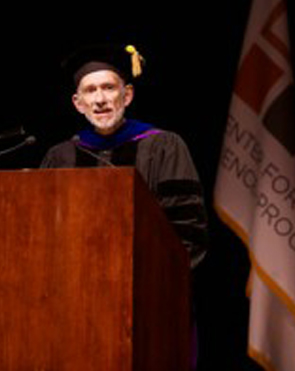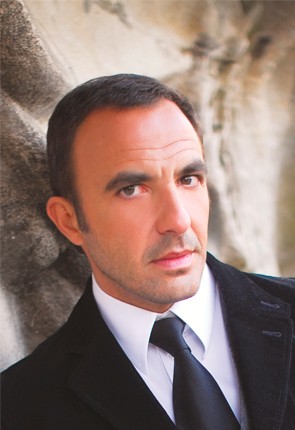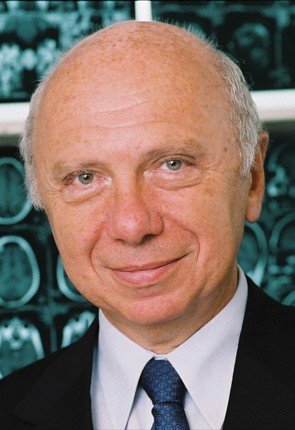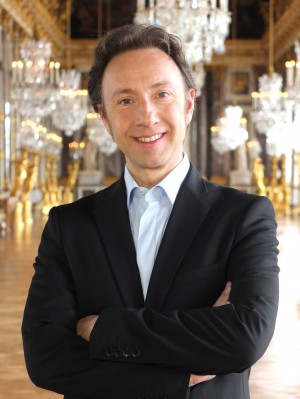Honorary Patron
Aristides Patrinos has always been a scientific mongrel. “Anytime you start feeling comfortable in a scientific field you should push yourself out of it” he says, “just drilling down in any scientific field may be rewarding but would not stress the mind to open new vistas and to lay new pathways for the brain’s neurons.” Dr. Patrinos has followed that creed during his entire career. A year ago he was riding high at Synthetic Genomics Inc. (SGI) where with his colleagues and world renowned scientists Craig Venter and Nobel Laureate Hamilton Smith they were carving new breakthroughs in applying genomic tools to solve problems in medicine, energy, and the environment. San Diego was also a great place to work with wonderful beaches and a climate that reminds one of Greece. Today Dr. Patrinos directs research at a newly created Center for Urban Science and Progress (CUSP) of New York University. The brainchild of New York City Mayor Bloomberg CUSP is employing the tools of “big data” to the challenges of urban sustainability, including those in transportation, air quality, air pollution, noise, public health, and safety. Working out of the center of New York’s urban jungle Dr. Patrinos is relishing the excitement of a “start-up” operation. The world will add an additional two billion people by the middle of this century and most of them will be in cities that are already feeling the strains of overcrowdings. New ways will have to be found to make urban life more sustainable and Dr. Patrinos is drawing from his experience at SGI and the U.S. Department of Energy (DOE) to come up with those new ways.
Dr. Patrinos left DOE and joined SGI in 2006 after leading the Biological and Environmental Research Program for over a dozen years. He became a leading authority on genomics, structural biology, global environmental change, nuclear medicine, and health effects. He played a key role in the Human Genome Project, the signature project of modern day biology; launched the visionary Genomes to Life Program; and founded the DOE Joint Genome Institute. At DOE Dr. Patrinos also was one of the founders of the international Global Change Research Program and of the Intergovernmental Panel on Climate Change. Many of his contributions are reflected in the scientific and policy frameworks of the U.S. during those years. Among the most decorated DOE scientists Dr. Patrinos received three Presidential Rank Awards, two Secretary of Energy Gold Medals, and numerous honorary degrees.
Aristides Patrinos was born in 1947 and was raised in Alexandria and Cairo amid the very cosmopolitan and vibrant Greek community of Egypt. His father was also born in Alexandria and his mother was born in Asia Minor’s Smyrna with all the ancestors hailing from the island of Chios. He attended British schools until Nasser expelled the British so he switched to the Greek Abet School in Cairo and graduated in 1965. He moved to Athens and attended the National Technical University of Athens where he studied mechanical and electrical engineering. Upon graduation he travelled to the U.S. and studied at Northwestern University in Illinois. He received his Ph.D. in 1975 and taught for a year at the University of Rochester in New York State. From there he had stints at DOE National Laboratories in Tennessee and New York and settled in Washington DC where he eventually joined DOE. In 1980 he married Kathryn Hoff, whom he had met in Knoxville, Tennessee. They have two daughters : Maritsa (Patrinos’ mother’s name) and Thalia (Patrinos’ grandmother’s name).
Apart from his CUSP role Dr. Patrinos is also a professor of mechanical, chemical, and biological engineering at NYU. In that capacity he still works part-time for SGI and in projects that involve synthetic biology approaches. “Synthetic biology,” Dr. Patrinos says, “is biology’s new frontier. Whereas the Human Genome Project has enabled ever faster and cheaper DNA sequencing the time has finally come for us to not just read DNA but also to write it and produce it. This new technology will enable the synthesis of microbial cells with significant capabilities to among many things convert diverse feedstocks, including carbon dioxide, plants, and coal into next generation chemicals, fuels, and agricultural products that are both sustainable and environment-friendly.” Dr. Patrinos feels particularly vindicated because his enthusiasm for synthetic biology in the early 1990’s was met with considerable skepticism but he persevered and pushed a very aggressive research program in synthetic biology by Craig Venter, Hamilton Smith, and their colleagues within both SGI and the not-for-profit J Craig Venter Institute. Today, the results of this research are revolutionizing the fields of vaccines; renewable fuels, chemicals, and foods; and other agricultural products.
Today Dr. Patrinos continues his advocacy on Capitol Hill on behalf of sustainable solutions to our world’s energy and environmental challenges testifying before key Congressional committees. Moreover, he continues to be involved in initiatives that are helping Greece recover from the grave economic crisis by stressing the importance of investing in scientific research and development that he believes is the best way to enable Greece’s economy to rebound from the disastrous recession of recent years. Dr. Patrinos is proud of his service on the Board of Directors of Tsakos Energy Navigation (TEN), a pioneering company founded by a fellow native of Chios (although of a rival village Kardamyla vs Patrinos’ Vrondathes) Panagiotis Tsakos. TEN is the perfect example of how Greece needs to proceed in the years ahead in terms of work ethics and commitment.
At the purely personal level, Dr. Patrinos is a passionate acolyte of American Blues music and is devoted to the Rolling Stones and especially to the band’s lead guitarist Keith Richards. He is also a big soccer (football) fan and in particular of AEK in Athens and of Arsenal in London.
News
- Prof. Dr A. N. Patrinos speech
- Athens is one of the winners of the 2014 Bloomberg Philanthropies Mayors Challenge







